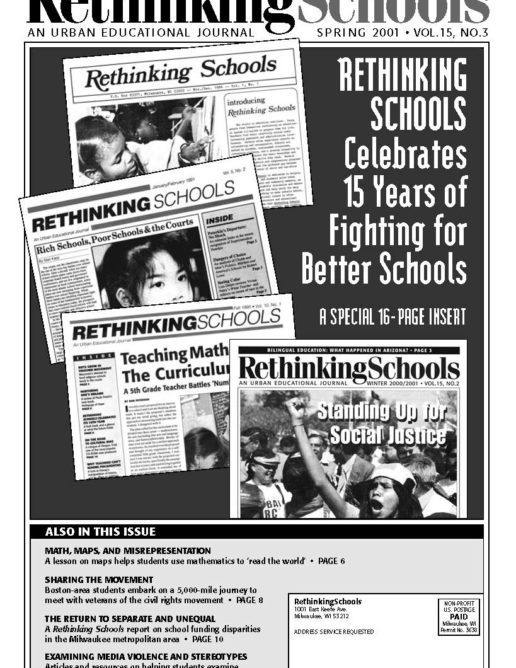Listening to Children
The energy and unpredictability of the classroom are wonderful antidotes to weary policy debates
When I feel low in spirit – after days of weary legislative beggary in Washington, for instance – I go back into a public school and spend a day with children and their teachers.
This is not some kind of venture into part-time sociology. I do not spend these days “observing pedagogical interactions” or compiling notes that could perhaps be elevated to the noble status of objective “research.” I spend these hours simply listening to children, sometimes answering the questions that they ask me if they or their teacher, as they do from time to time, decide to put me on the spot.
In one inner-city elementary school, the children in a writing program asked me questions far more personal, and much more interesting, than the ones grown-up reporters usually ask: “Is it lonely to write books?” “Do you feel sad because you’re old?” “How do you feel when people praise your books but can’t pronounce your name?”
In another school, a teacher let me take her first-grade class and do a reading lesson. I was a tremendous failure. Everybody spoke at once. I had forgotten what to do when all those little protons and electrons started spinning and colliding with each other. The teacher had to bail me out. It was a useful lesson in humility. (Perhaps all of the so-called “experts” in the pedagogical world ought to be put in this position several times a year. It forces us to think more carefully about the confidence with which we issue our ex cathedra prescriptions. Doing the real thing in the real world with real children now and then is a good medicine for excess certitude about how much we think we know.)
In Philadelphia, one pleasant day last fall, I learned exactly how to make an economically essential product called “green slime.” I doubt that this is something tested on high-stakes exams; but it was fun and it reminded me of the rewardingly chaotic messiness of education when a teacher’s day has not been scripted down to drilling children for a miserable journey that arrives forever at a pre-planned and utilitarian objective.
I’ve been in schools, as well, in which a city did attempt to force a martial regimen on elementary-level teachers but in which the teachers were deliciously subversive in the ways they handled it. Many of the best young teachers, asked to follow proto-military methods of so-called “Direct Instruction,” undermine these regimens with charmingly irreverent creativity and oppositional satiric attitudes delivered frequently by nothing more audacious than the briefest insurrectionary smiles.
They don’t throw up their hands and quit, or run away to a suburban school, or to a private school, or to a charter school, but stay there in the front lines with the other teachers and learn how to make a go of it. Day by day, they do the job, and their reward is not in pay (how could it be?) but in transformative enchantment.
It is an entirely different kingdom of existence from the world of pedagogical policy debate. It is a thousand miles removed from the obsessively uninteresting world of “standards-based instructional techniques,” “assessment-based curriculum development,” “performance-referenced standards,” and the other hyphenated doublespeak that educators think they are required to vomit up in periodic gatherings at Marriott Hotels. It is not a world of hyphens or of labored polysyllables. I’ve never heard a first-grade teacher say she was about to “utilize” the pencil sharpener or “implement a strategy” or “replicate” a piece of paper. Most teachers still speak English and not Education Conference Talk. The presence of real children is at all times an effective antibody to diseased vocabulary.
This is the world to which I eagerly return when I have spent too many hours in the fevered universe of Washington. I don’t do it as often as I’d like, but I do it when I know I need to; and I’m always grateful to the teachers for permitting me these opportunities. They never let me down; nor do the children. If it were not for their kindness, I’d have given up this struggle long ago.

